How to Draw Diagrams in Visio
Visio® Overview
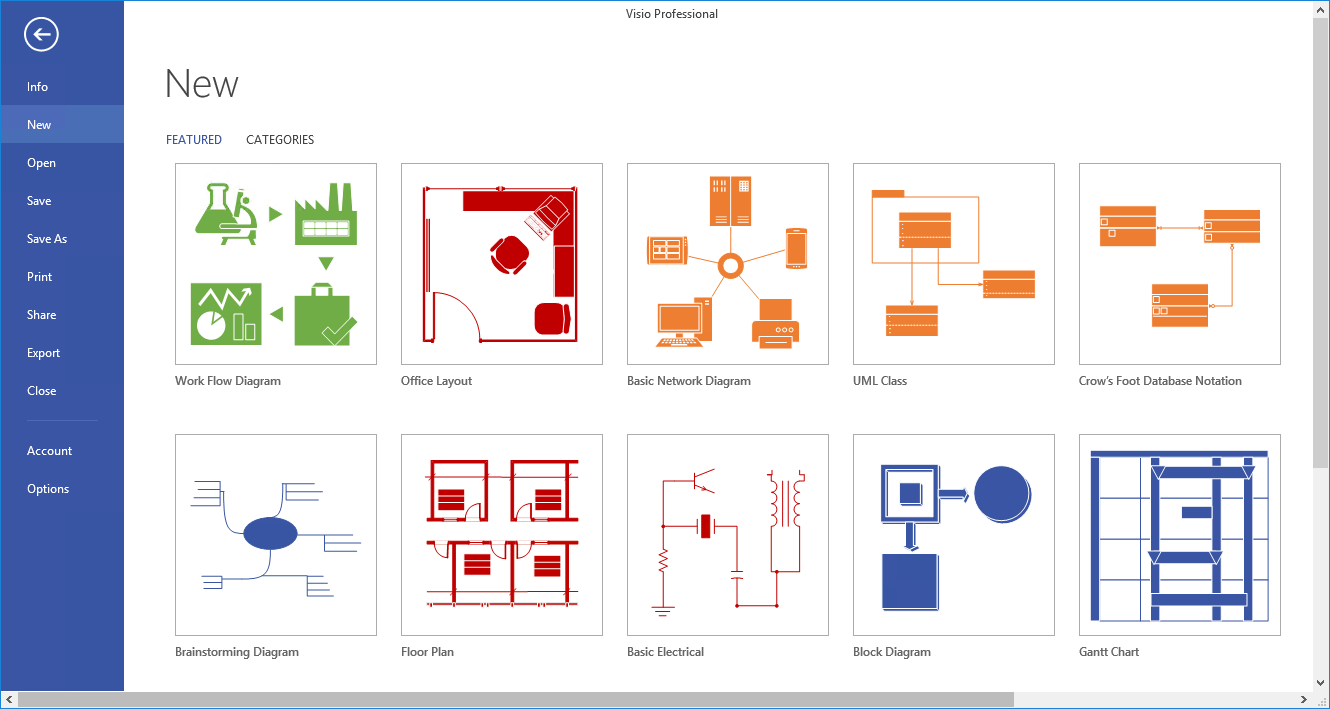
What Is Visio?
Visio is a Microsoft Windows based diagramming software that includes templates and symbols assuasive users to create flowcharts, organizational charts, flooring plans, network diagrams, mind maps, infographics and more. Visio is part of the Microsoft Office software suite, although it is sold as a stand up-alone programme.
Visio was first released by the Visio Corporation (known then as the Shapeware Corp.) in 1992 and acquired by Microsoft in 2000. Visio is primarily sold every bit downloadable software, merely released an online version in 2017. In that location are no native Mac Os versions of Visio.
History of Visio
Visio version one.0 was released in 1992 by the Shapeware Corporation. Visio was the commencement product shipped by Shapeware, equally the company had only incorporated 3 years earlier in 1989. As Visio software grew in popularity and recognition, Shapeware inverse their proper name in 1995 to the Visio Corporation to match their burgeoning diagramming software.
In 2000, Microsoft caused Visio (the company and the software) in a stock swap, with the deal estimated to be worth $1.v billion at the time, making it Microsoft'southward largest acquisition of the time. There accept been approximately sixteen versions of Visio released since its inception. Interestingly enough, Visio released versions 12 and 14, simply never a version 13 due to superstitious fears surrounding the number 13.
Visio Diagram Types
There are several different types of diagrams y'all tin can make using Microsoft Visio. Below are some of the more popular uses for Visio.
Flowcharts
Flowcharts show a visual sequence of steps and decisions for a process, more often than not using shapes to show the steps and arrows to testify the progression from 1 footstep to some other. Flowchart is a generic term, and can too include procedure flows, process maps, work flows and flow diagrams.
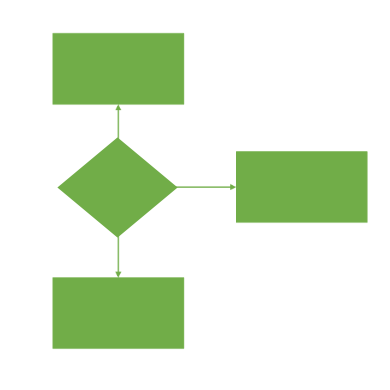
Organizational Charts
Organizational charts, or org charts, prove the reporting relationships and hierarchies inside an organization. They can bear witness who reports to who, as well as the overall hierarchy from elevation to bottom to help with planning and direction. Organizational charts are also known every bit hierarchy charts, construction charts and organograms.
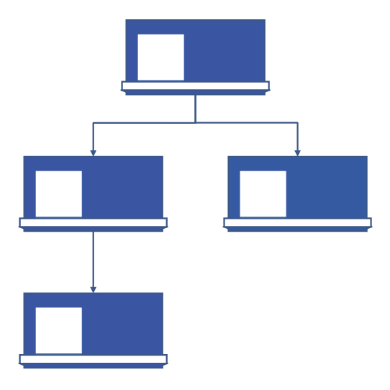
Floor Plans
Floor plans are scaled drawings that prove the footprint or cross section of a building or other structure. They are used to ensure proper sizing every bit well as the location of rooms and other items, similar piece of furniture, relative to one another. Floor plans are likewise called house plans, blueprints, architectural plans, building plans and schematics.
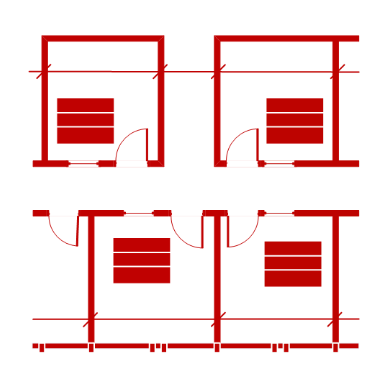
Mind Maps
Mind maps are diagrams that prove the connection between ideas by grouping and connecting related ideas to the overall topic(s) at manus. Mind maps brand for effective planning and brainstorming tools. Listen maps are also known every bit concept maps.
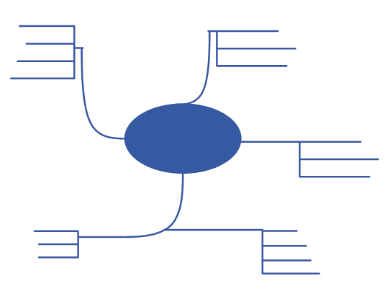
Charts & Graphs
A staple of Excel, but also included in Visio, charts and graphs are seen in most every business organisation presentation. They are used to represent data visually in a way that makes the data beingness presented easier to understand. Common examples include bar charts, line charts and pie charts.
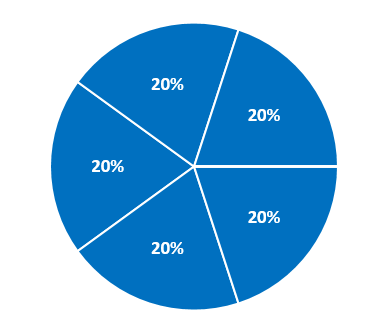
Gantt Charts
A common diagram in project management and planning is a Gantt chart. Gantt charts testify individual tasks in a project, their start and finish dates, the people assigned to the tasks also as other information relevant to the project. While Microsoft also develops Project, a dedicated project planning software, Visio however includes rudimentary project planning templates too.
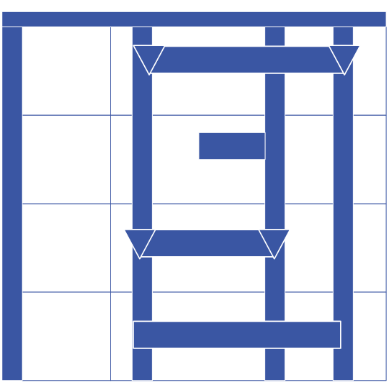
Network Diagrams
Network diagrams use symbols and lines to show the structure, nodes and connections for a location'south reckoner network. Network diagrams are useful for understanding which nodes are a part of which network, only tin also be useful in agreement how computer information flows through an organization.

Visio Shape Data & Open API
Shape Data
Visio shape data is a powerful tool that allows you to add data to shapes in a diagram to provide more than information about that shape without cluttering the shape with a bunch of added text. For example, you can add data to a shape within an org chart providing more data well-nigh that position's championship, bacon, department number or contact info. Specific data about IP addresses and hardware info can be added to shapes in a network diagram; for a floor plan, data can be added to specify the types of materials to exist used. All of this added data is accessed by right clicking on a shape in your Visio diagram and choosing Shape from the driblet down menu.
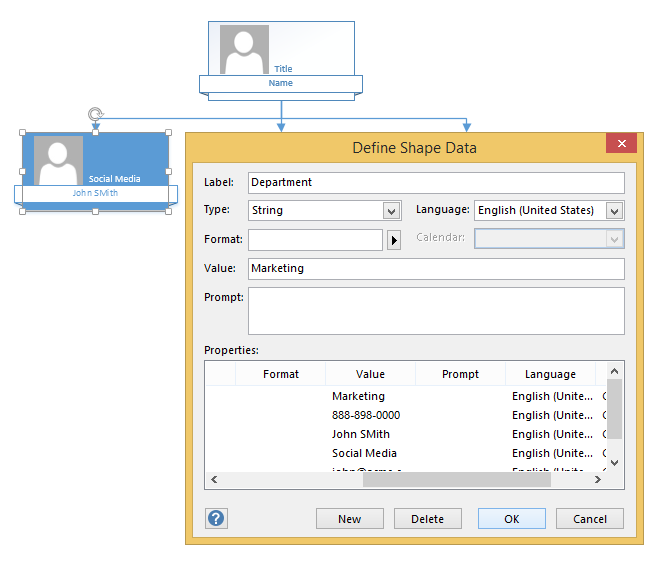
Shape data is a feature that few diagramming softwares offer and is critical for calculation additional information to diagrams. SmartDraw is another selection that includes shape information. With SmartDraw, data can be manually added to a shape, or automatically via an import. SmartDraw offers the ability for intelligent shape information, allowing shapes to alter their appearance depending on the data they contain. For example, an overutilized server shape in a network diagram could be automatically colored red, or have a flag icon added to it. Added data tin can be exported as a manifest, showing, for example, the number and types of computers in a given office, their location, equally well equally asset tags or any other relevant information. SmartDraw tin can consign a manifest with a unmarried click, Visio requires a custom made, tertiary-party integration.
Visio API & Object Model
Visio includes an application programming interface (API) that employs object models that allow users to create scripts that automate certain features of Visio, such every bit opening a new diagram, altering shape behavior, customizing the user interface (UI), or adding shapes to an existing diagram. With the correct code, a user tin can have a diagram created automatically by inputting data or linking to an external data source (like Excel), rather than needing to create the diagram manually past dragging in and/or cartoon each portion of the diagram.
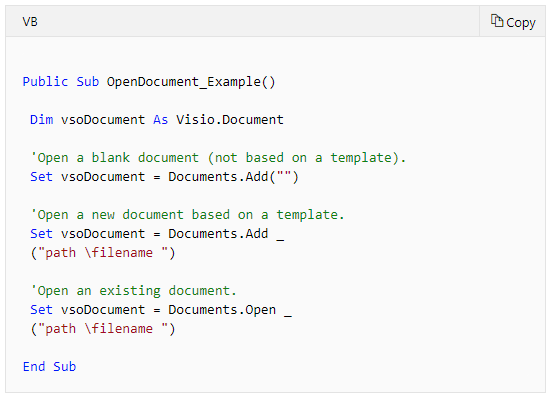
For this to piece of work, users will need to be familiar with programming languages such as Microsoft Visual Basic for Applications (VBA), C#, or .NET, will demand a copy of Visio, and will need to have the time to properly set up each script and define most object properties. To automatically add shapes to a diagram, the coordinates and size of each shape and line in the diagram need to be explicitly specified by the programmer. This makes creating a properly formatted diagram from varying data a hard task. Even so, once understood, automated diagramming using scripts provides a huge do good to end users, and volition brand diagramming and creating visuals much less tedious and time consuming.
Much like shape data discussed to a higher place, any good diagramming software should provide an open API to automate much of the diagramming process, and to permit users to customize the program to provide the results most relevant to them. SmartDraw uses the VisualScript SDK equally a means of automating diagrams and amend visualizing data. The VisualScript SDK takes automation to a new level past removing nigh of the tiresome aspects of script writing (like calculating the geometry/location of the shapes), while nevertheless delivering a personalized and professional person diagram each and every fourth dimension. Click here to learn more most VisualScript.
SmartDraw as a Visio Alternative
SmartDraw is a perfect Visio alternative. SmartDraw offers so much more than in terms of breadth of content and ease of use, all for a lower price. SmartDraw includes a full Visio import and export, and the ability to import and save Visio stencils. Run into why individual users and Fortune 500 enterprises alike are switching to SmartDraw.
Browse SmartDraw's entire collection of templates and examples or learn more by clicking whatever of the links beneath.
Source: https://www.smartdraw.com/visio/
0 Response to "How to Draw Diagrams in Visio"
Post a Comment